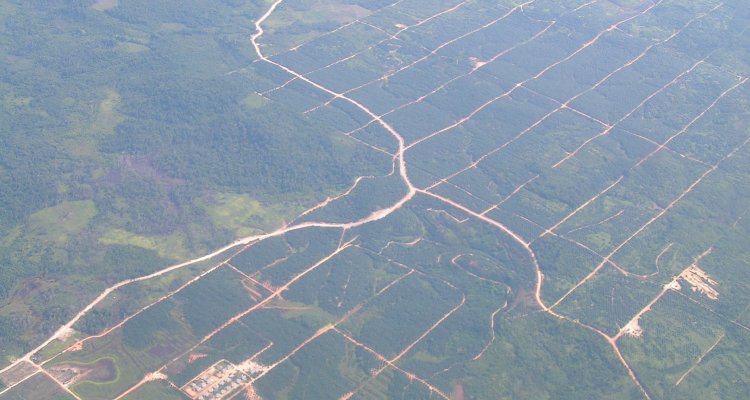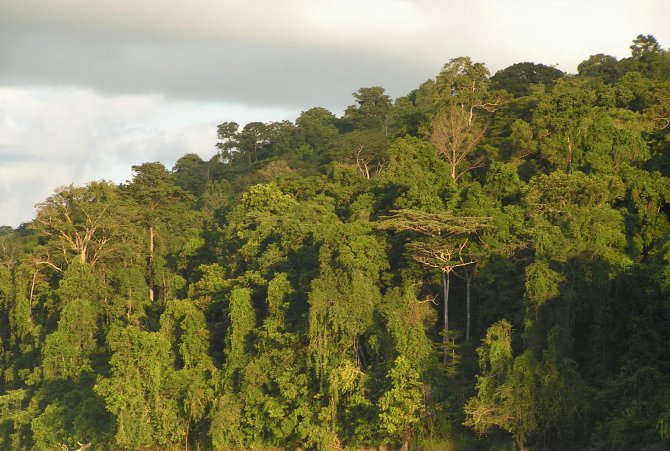
News
Indonesian deforestation and palm oil plantation expansion slows down
Much concern about tropical deforestation focuses on the expansion of oil palm plantations, but their impacts remain poorly quantified. Through a survey conducted in Indonesia from 2001 to 2019, scientists from seven countries representing six organisations took stock of and estimated the impact of large-scale and smallholder oil palm plantations on natural old growth, or primary, forests. The results of this new study were published in the journal PLOS One.
Palm oil cultivation plays an important role in loss of Indonesian old-growth forests
Concern for Indonesia’s unique rain forests and their species-rich communities, including charismatic animals such as orangutans, tigers, and elephants is nothing new. But in recent decades this has increasingly focused on the palm oil industry. In Indonesia, where half of global palm oil production occurs, expansion of oil palm plantations has often replaced forests. The researchers make a conservative estimate that oil palm was responsible for one-third of Indonesia’s loss of old-growth forests (9.79 million hectares cleared, or 11 percent of forest area in 2000) over the last two decades.
Palm oil is an ingredient in many of the packaged products found in supermarkets, including ready meals, baked goods, chocolate, cosmetics, and shampoo. It is also used as animal feed and increasingly as a biofuel. Research shows that expansion of industrial plantations and forest loss is closely correlated with palm oil prices.
Cautious optimism
Historically, a price increase of 1 percent was associated with a 1.08 percent increase in new industrial oil palm plantations and a 0.68 percent increase in forest loss.The recent spike in palm oil prices has not, however, been accompanied by an expansion of new palm oil plantations, a cause for cautious optimism, the researchers said.
“Deforestation rates fell below pre-2004 levels from 2017 to 2019, providing an opportunity to focus on sustainable management,” said David Gaveau, lead author and managing director of TheTreeMap. “The price of palm oil has doubled since the beginning of the COVID-19 pandemic, making effective regulation and oversight key to preventing further forest conversion.”
The results of the study are based on satellite data using multi-sensor imagery. With these data the scientists were able to detect small plantings too.
Douglas Sheil, professor of Forest Ecology and Management from Wageningen University and Research, a co-author, underlined that the forests in Indonesia, generally considered third biggest after Brazil and Democratic Republic of Congo, are some of the most special in the world. “I’ve been fortunate to work in these forests, getting to know local people and seeing some of the region’s unique and wonderful biodiversity. The loss of these forests, cultures and species is a loss for the world,” he said.
Opportunities to improve planning and management of oil palm
In 2011, Indonesia introduced a national moratorium on developing oil palm plantations in primary forests. It was extended indefinitely in 2019, and in J anuary 2022 the Ministry of Environment and Forestry cancelled the permits of 137 oil palm companies.
Updated data to 2021, gathered after the study period analysed in the new Plos One journal article, indicate that palm oil driven deforestation is now at a 20-year low despite rapidly rising CPO (palm oil market) prices. As prices soared to $1,000 per ton in 2021, companies converted just 15,540 hectares of “primary” forest to industrial oil palm. High production costs, market uncertainties, and regulations appear to underline these changes. By comparison, 224,100 hectares were converted to oil palm in 2012 when prices were also around $1,000.
“The slow-down in expansion offers a chance for the Indonesian government and other stakeholders to work together to improve planning and management of oil palm and other plantations,” said co-author Timer Manurung from Auriga Nusantara. “Encouraging good practices and transparency will serve future generations.” Sheil: “While the long-term situation remains unclear, recent trends are good news for Indonesian forests. A fair and nuanced approach to palm oil and similar forest-risk commodities is vital.”
